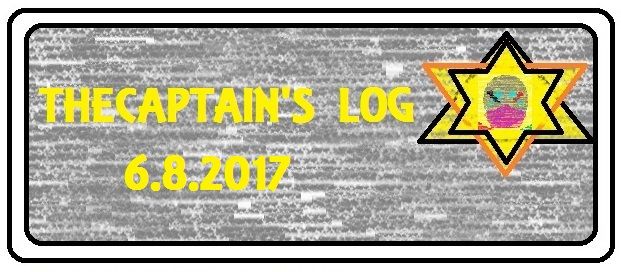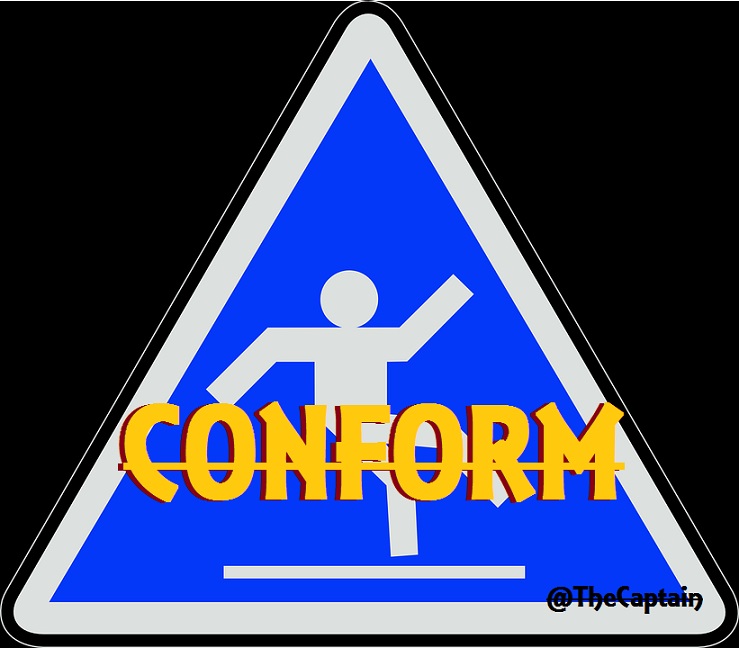"Accidie: Discomfort, Ennui, and Despair": TheCaptain's Log 6.8.2017
Accidie. A "lost" and "antiquated" term, but a modern affliction: TheCaptain's Log 6.8.2017

Where do we find ourselves if we've never been at odds with the world around us ? Where do we find outselves if we live life with our questions unasked, and unexplored ? Where do we go when the nomenclature at our disposal doesn't do our inner worlds justice ? We can look to the past, or we can develop a new future.
Aldous Huxley, writer of dystopian classics like "Brave New Worlds", known for interweaving the melancholic, the fascinating, and the comedic with depth, spoke not only of science fiction. While an avid humanist, a promoter of intellectual and emotional growth, he was an observationalist of the trappings of humanity as well. Heralded as a philosopher, Huxley explored topics ranging from psychedelics to universalism.
He spoke of a concept not often explored contemporarily- a rare mention since the mid 1970s in a NY Times article. A deep melancholy- distinct from depression and the idea of melancholy as we see it- called accidie. It is a concept that when spoken about is often considered "hard to explain". While I don't quite agree, one must consider that naturally, all things are tough to understand when one has not experience with it themselves.
How Can we Characterize Accidie ?
When we picture depression we see: cartoon women sullenly going about their duties, haunted by rain clouds and bathrobes. Only to be saved by magic pills prescribed by our doctors- when in reality the results of antidepressants aren't usually that starkly contrasting. Or images of poetic despair popularized in the media as being something beautiful, but still something that can easily be shirked off if we just "tried harder." When we think of melancholy we think of plague doctors and psych wards that used to harvest women's hair for wigs (Joanna in the Asylum circa Sweeney Todd anyone?). Or possibly the proto-psychological concept of the 4 Temperaments.
Its easy to experience malaise like these during a time when war, famine, and tyranny both domestic and abroad, among other ample stressors are still common occurrences leeching Human life. Looking toward the writings of authors like Huxley can help us develop a discerning light for which we can further our own development.
We don't, however, have a go-to image for acedia. Accidie is not something that has disappeared from the Human experience. It is a driving energy that can lead to stagnation, confusion and a loss of self. Further so, a disambiguation from even caring that one's predilection for life is lost.
While dissimilar from the general idea of what depression is, thoughts on accidie have been openly curated since the 4th century AD when monks were being observed by an acetic named Evagrius. In David J Michael's masters thesis for Lund University, the author aims to highlight that Evagrius was of the first well known to ever mention the concept of accidie. During this time, accadie was considered a sin. A demon. It is described as a "tedium and boredom" that afflicted the "desert hermits [who lived a] relatively solitary existence."
One might respond to this with: "We live in the modern age! With the advent of the internet an the sheer amount of mass participation in social media, it is unlikely if not impossible that people are isolated anywhere near to that degree. Surely accidie is a "demon" gone from the modern world, an affliction that we can only look to and observe as troublesome to persons of our near-distant past." Some observationalists beg to differ. While making ourselves open for the world's perusal, we have further still, found ourselves distanced from one another- the opposite of what social media, in essence, strives to accomplish.
Michael Further highlights that in Evagrius' explications, he tells us of how the monks experienced accidie as “a dislike for the place and for his state of life itself, for manual labour, and also the idea that love has disappeared from among the brothers and there is no one to console him.”
Does this sound like the sorrows of anyone you know? Maybe yourself? Or the kid in your lecture hall that would pop in an earbud and half listen to his professor while slowly drifting in and out of a light nap?
In Huxley's work "On the Margin" he connects an antiquated term and concept with "modern disillusionment".
 (background image courtesy of Organ Museum ©2011 www.AbodeofChaos.org)
(background image courtesy of Organ Museum ©2011 www.AbodeofChaos.org)
Huxley, who wrote on acedia shortly following the 1st World War found that in the culture he was a part of: accidie was on the rise again. He considered it “a spiritual event of considerable importance... "Other epochs have witnessed disasters, have had to suffer disillusionment; but in no century have the disillusionments followed on one another’s heels with such rapidity as in the... twentieth, for the good reason that in no century has change been so rapid and so profound. The The mal du siécle was an inevitable evil. ” This leads us to wonder what Huxley would have to say about the dystopian circumstances the world is finding itself in once again.
On page 49 of his thesis, Michael goes on to highlight another nuance where acedia can be explored. Chris Fogle, a character in a work by David Foster Wallace called "The Pale King," experienced accidie in his young adult life. He quotes Fogle as saying, "Everyone I knew and hung out with was a wastoid, and we knew it. It was hip to be ashamed of it, in a strange way. A weird kind of narcissistic despair. Or just to feel directionless and lost—we romanticized it.” Michael reminds us that "Fogle suspects that rather than inflecting a hip pose, he may actually have been “the worst kind of nihilist—the kind who isn’t aware he’s a nihilist... [whose] essential response to everything was ‘Whatever’.”
This is behaviour that we still see exhibited contemporarily- especially in Millenials who are at a crossroads still between vibrant youth and weary adulthood. Contrary to Fogle's "wastoid era" (circa Pres. Jimmy Carter), we live in a time where pro anti-establishment, anarchist, atheist, atypical deist, and other assorted counter-culture observers wear their labels as badges of truth. This is not necessarily a bad thing, but these culture bandits are not necessarily any more well off than Wallace's character, the people that lived during Huxley's post WWI earth, nor the monks of the 4th century.
Where Do We Go From Here?
We know that tenacity and perseverance are things that we can utilize to conquer a spirit of accidie, according to Evagrius, but still, that is a trait that is lost, at large, in contemporary times. We are no longer, as a culture, bred to have the level of determination to follow a set pattern or pathway the way ascetics were. To me, that style of ideological living began dying out in the 60s when we aimed to move away from submitting ourselves to structures forced upon us and began to seek our own source(s) of truth.

Historically, as Americans we were taught to fall into line. Our culture dictates to us that there are "things that we have to do wether we like it or not" while simultaneously telling us that we can be anything we want to be and have all of the freedom in the world to pursue those dreams. With this clash between our internal realities- filled with our dreams and goals- and the one thrust upon us by our culture- which fights to trample that inner world-, we begin to breed a Culture of Escapism (which may lend further, again, into why the use of social media and the effective level of lonliness adolescents report to feel are correlated in the way they are now).
In this weariness, we can find ourselves at odds with everything around us. Within and without of ourselves; there is where accidie comes in. It's a slow, silently emergent, and engulfing spirit of frozen listlessness. Of inattention yet awareness. Of despair without direction. An ennui of disproportionate bearing. Of an existential unrest that leads to a sense of lack while at the same time, not mattering to the person feeling it enough to want to fill that hole. It's an essence, bred through a great loneliness uncovered through awareness of how beautiful existence should be compared with the sheer amount of folly ones contemporaries choose to dwell in (their ill begotten choice to malinger, halted by fears, despite all ability to thrust themselves forward into their own greatness). An essence that arises from breathing life in so deeply that one finds themselves at odds with the lackluster worldscape in which they live.
Congratulations @thecaptain! You have completed some achievement on Steemit and have been rewarded with new badge(s) :
Click on any badge to view your own Board of Honnor on SteemitBoard.
For more information about SteemitBoard, click here
If you no longer want to receive notifications, reply to this comment with the word
STOPBy upvoting this notification, you can help all Steemit users. Learn how here!